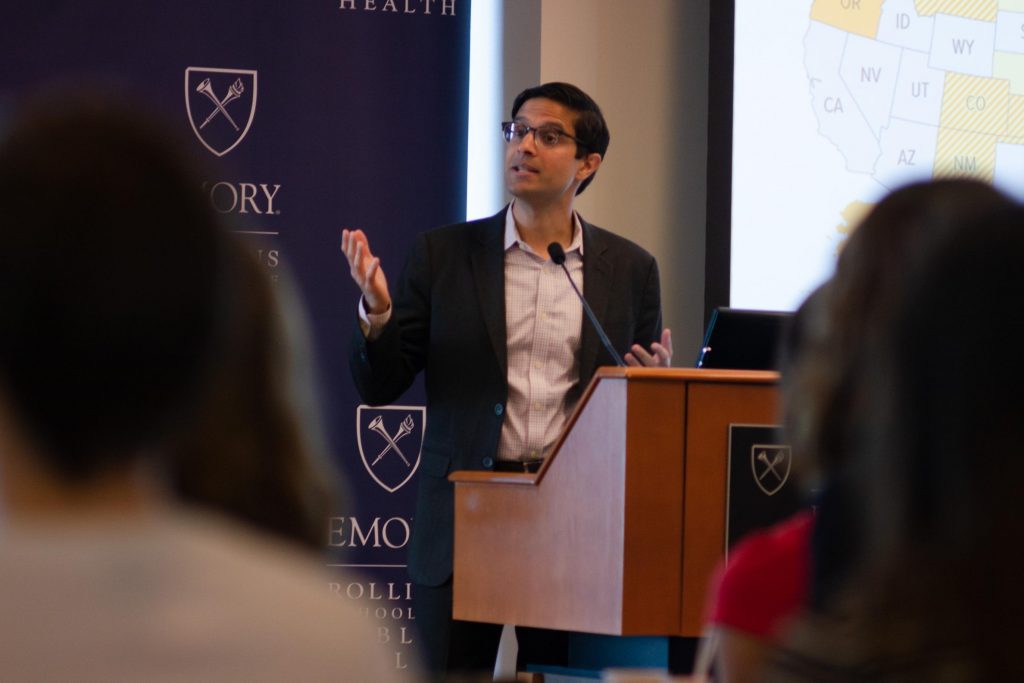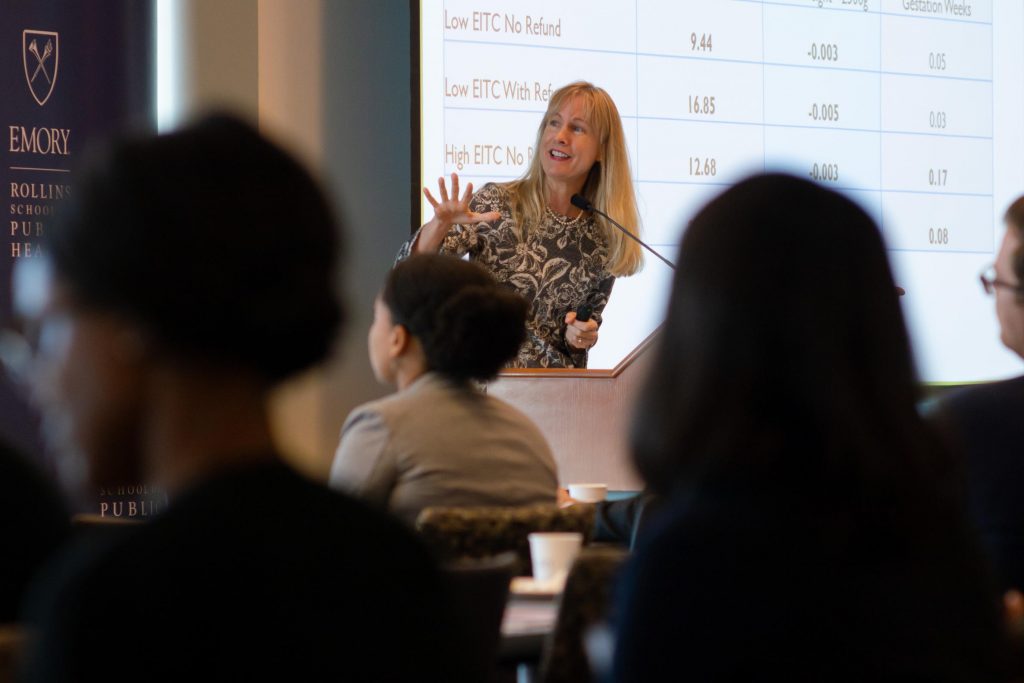
This blog was originally posted by Laura Harker at the Georgia Budget and Policy Institute.
Public health and taxes. While it may seem like an unlikely pairing, GBPI brought the two topics together at an event last week held at the Emory University Rollins School of Public Health. GBPI has led the Georgia Work Credit campaign since 2015, urging lawmakers to enact a state earned income tax credit as a bottom-up tax cut for working families. A growing body of research shows that the Earned Income Tax Credit (EITC) not only provides an income boost for working families, but it can also boost health.
Advocates, public health professionals, researchers, foundations and others gathered on August 28 for a briefing on the research highlighting the health benefits of the EITC. After time for attendees to network over breakfast, the day opened with a welcome and introduction from Dr. James Curran, Dean of Rollins School of Public Health and Taifa Butler, GBPI’s Executive Director.

Dr. Giridhar Mallya from the Robert Wood Johnson Foundation delivered the first presentation, laying the foundation for how budget and tax policy is linked to health. He spoke about how states spend over half their revenue on education and healthcare, but many are facing financial pressures due to revenue shortfalls. Large spending cuts, driven by the recession and big tax cuts, reduce the amount of revenue available for policies and programs linked to improved health. Recognizing this, the Robert Wood Johnson Foundation is investing in state budget and tax work as part of their mission to build a Culture of Health. Dr. Mallya also spoke about how health funders can play a role in fiscal and social policy, such as providing data to inform decision making, supporting multi-sector community development strategies, and supporting non-lobbying advocacy initiatives.
I followed with an introduction of the research from our new report “State Earned Income Tax Credits: A Proven Tool to Improve Health.” The report includes research on the effects of increasing the amount of the federal EITC or enacting a new state EITC. Both would increase the size of credits available to families, especially for larger families with more children. The research shows that higher EITCs contribute to improved maternal health, infant and child health, and mental health.
There are many worthwhile reasons for Georgia lawmakers to take the policy’s health benefits into account. For example, Georgia ranks 5th in low birth weight and these rates are much worse among black mothers. Increases in the EITC have a greater effect in declining low birthweight among black mothers, which could help promote better health equity in the state. Also, poorer counties – more likely to be rural – suffer a greater economic burden from people reporting poor mental health days. Higher EITC payments are associated with reducing the number of poor mental health days mothers with two or more children report.

Dr. Kelli Komro, a professor at Rollins School of Public Health, closed by sharing her team’s research findings on the EITC’s effects on birth outcomes. She discussed how economic factors such as poverty and gender and racial discrimination can affect people’s stress levels, health care access and health behaviors. These are all mediating factors that can contribute to a higher risk of adverse birth outcomes like low birth weight and infant mortality. Her research found that if Georgia implemented a refundable EITC at 10 percent of the federal credit, the state could reduce the number of low birthweight babies by 1,047 per year. Dr. Komro also spoke about their research finding that a state EITC has larger benefits on birth outcomes for black women, showing the potential to reduce existing inequities. Her team is continuing to conduct research on health and other family economic security policies such as minimum wage laws, unemployment insurance and temporary cash assistance.
The event closed with some brief questions from the audience, with a particular interest how research on EITCs and health can translate to evidence for budget savings in the Medicaid program and the case for Medicaid expansion. Attendees left with copies of our report and information about getting involved in the Georgia Work Credit campaign. The event was a great opportunity to engage a newer audience in the tax policy conversation. We look forward to continuing the conversation with the health expert community, who can share a unique and important perspective as Georgia policymakers consider enacting a state EITC.
Briefing Photo Gallery
